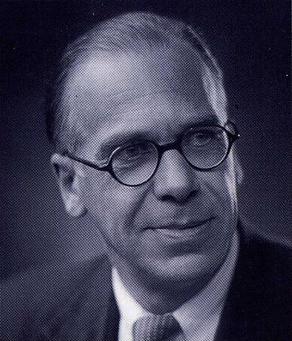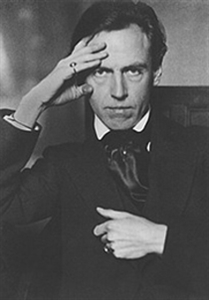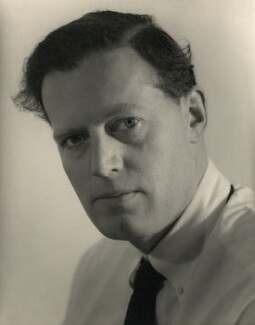Related Research Articles

Michael Laurence Nyman, CBE is an English composer, pianist, librettist, musicologist, and filmmaker. He is known for numerous film scores, and his multi-platinum soundtrack album to Jane Campion's The Piano. He has written a number of operas, including The Man Who Mistook His Wife for a Hat; Letters, Riddles and Writs; Noises, Sounds & Sweet Airs; Facing Goya; Man and Boy: Dada; Love Counts; and Sparkie: Cage and Beyond. He has written six concerti, five string quartets, and many other chamber works, many for his Michael Nyman Band. He is also a performing pianist. Nyman prefers to write opera over other forms of music.
Benjamin Frankel was a British composer. His best known pieces include a cycle of five string quartets, eight symphonies, and concertos for violin and viola. He was also notable for writing over 100 film scores and working as a big band arranger in the 1930s. During the last 15 years of his life, Frankel also developed his own style of 12-note composition which retained contact with tonality.
Gordon Percival Septimus Jacob CBE was an English composer and teacher. He was a professor at the Royal College of Music in London from 1924 until his retirement in 1966, and published four books and many articles about music. As a composer he was prolific: the list of his works totals more than 700, mostly compositions of his own, but a substantial minority of orchestrations and arrangements of other composers' works. Those whose music he orchestrated range from William Byrd to Edward Elgar to Noël Coward.

William Alwyn, was an English composer, conductor, and music teacher.

Cyril Meir Scott was an English composer, writer, poet, and occultist. He created around four hundred musical compositions including piano, violin, cello concertos, symphonies, and operas. He also wrote around 20 pamphlets and books on occult topics and natural health.
Alan Ridout was a British composer and teacher.

Richard Anthony Sayer Arnell was an English composer of classical music. Arnell composed in all the established genres for the concert stage, and his list of works includes six completed symphonies and six string quartets. At the Trinity College of Music, he "promoted a pioneering interest in film scores and electronic music" and jazz.

David Matthews is an English composer of mainly orchestral, chamber, vocal and piano works.
Marcel Mihalovici was a French composer born in Romania. He was discovered by George Enescu in Bucharest. He moved to Paris in 1919 to study under Vincent d'Indy. His works include his Sonata number 1 for violin and piano (1920), Mélusine opera, his 1st string quartet (1923), 2nd string quartet (1931), Sonata number 2 for violin and piano (1941), Sonata for violin and cello (1944), Phèdre Opera (1949), Étude in two parts for piano and instrumental ensemble (1951) and Esercizio per archi (1960). Many of his piano works were first performed by his wife, the concert pianist Monique Haas.
Leonard Salzedo was an English composer and conductor of Spanish descent. He composed over 160 works, including 18 film scores, 17 ballets, ten string quartets and two symphonies.
Brett Dean is an Australian composer, violist and conductor.
Walter Leigh was an English composer. Leigh is best known for his Concertino for harpsichord and string orchestra, written in 1934. Other famous works include the overture Agincourt and The Frogs of Aristophanes for chorus and orchestra. He wrote music for documentary films and there is an unfinished sketch for a symphony.
Bernard (George) Stevens was a British composer who first became known to a wider public when he won a newspaper composition prize for a 'Victory Symphony' in post-war 1946. The broader success was not sustained, but Stevens went on to become a respected composer and teacher at the Royal College of Music, using traditional forms for his compositions while extending his essentially tonal harmonic language towards serialism.
Raymond Henry Charles Warren is a British composer and university teacher.

Lucijan Marija Škerjanc was a Slovene composer, music pedagogue, conductor, musician, and writer who was accomplished on and wrote for a number of musical instruments such as the piano, violin and clarinet. His style reflected late romanticism with qualities of expressionism and impressionism in his pieces, often with a hyperbolic artistic temperament, juxtaposing the dark against melodic phrases in his music.
Arthur Eckersley Butterworth, was an English composer, conductor, trumpeter and teacher.

Andreas Makris was a Greek-American composer and violinist, born in Kilkis, Greece, on March 7, 1930. He was a Composer-in-Residence for many years at the National Symphony Orchestra in Washington DC, working with conductors such as Howard Mitchell, Mstislav Rostropovich, Antal Dorati, and Leonard Slatkin. He composed around 100 works for orchestra, chamber ensembles, and solo instruments, including the Aegean Festival Overture, which, transcribed for concert band by Major Albert Bader of the USAF Band, became a popular piece with US bands. Grants and awards he received include the Damroch Grant, National Endowment for the Arts Grant, the Martha Baird Rockefeller Award, ASCAP Award, the Fulbright Scholarship, and citations from the Greek Government.
William (Willy) Ostijn, also seen as Ostyn, was a classical Belgian composer of the 20th century.

Airat Rafailovich Ichmouratov born 28 June 1973) is a Volga Tatar born Russian / Canadian composer, conductor and klezmer clarinetist. He was conductor and composer in residence of Longueuil Symphony Orchestra (2018-2021), clarinetist of Montreal-based Klezmer group Kleztory and invited professor at Laval University in Quebec, Canada. On 21 October 2020 Airat Ichmouratov received Charles Biddle Award. This honour, given by Ministry of Immigration, Francisation and Integration, and Culture pour tous highlights the contributions of immigrants to Quebec whose personal and professional commitment contributes to the province's cultural and artistic development.
References
- ↑ JimQ (26 May 2014). "Carlo Martelli". Soundtrack. Retrieved 9 August 2020.
- ↑ 'Young Composer's Achievement', The Times, 28 October 1957, p 5
- 1 2 3 Conway, Paul. 'Carlo Martelli: A Gifted Musician' at MusicWeb International
- ↑ '13 New British Works' in The Manchester Guardian, 3 April 1958, p 3
- ↑ Broadbent & Dunn, music publishers
- ↑ 'Carlo Martelli: String Chamber Music Recording', Land of Lost Content
- ↑ Notes to English String Miniatures, Volume 3, Naxos
- ↑ Radio Times Issue 3182, 1 November, 1984, p 74
- ↑ Radio Times Issue 3334, 15 October 1987
- ↑ Conway, Paul. 'Review' in Tempo, Vol. 66, No. 259, January 2012, pp. 89-91
- ↑ British Celebration Vol 4, Heritage HTGCD165 (2021)
- ↑ Royal Ballet Sinfonia conducted by Ronald Corp, Borough Music (2019) reviewed by the Light Music Society
- ↑ Dutton Epoch CDLX7270 (2011)
- ↑ English String Miniatures, Vol 3, Naxos 8.555069 (2001)
- ↑ Discardia DISCA002 (2013)